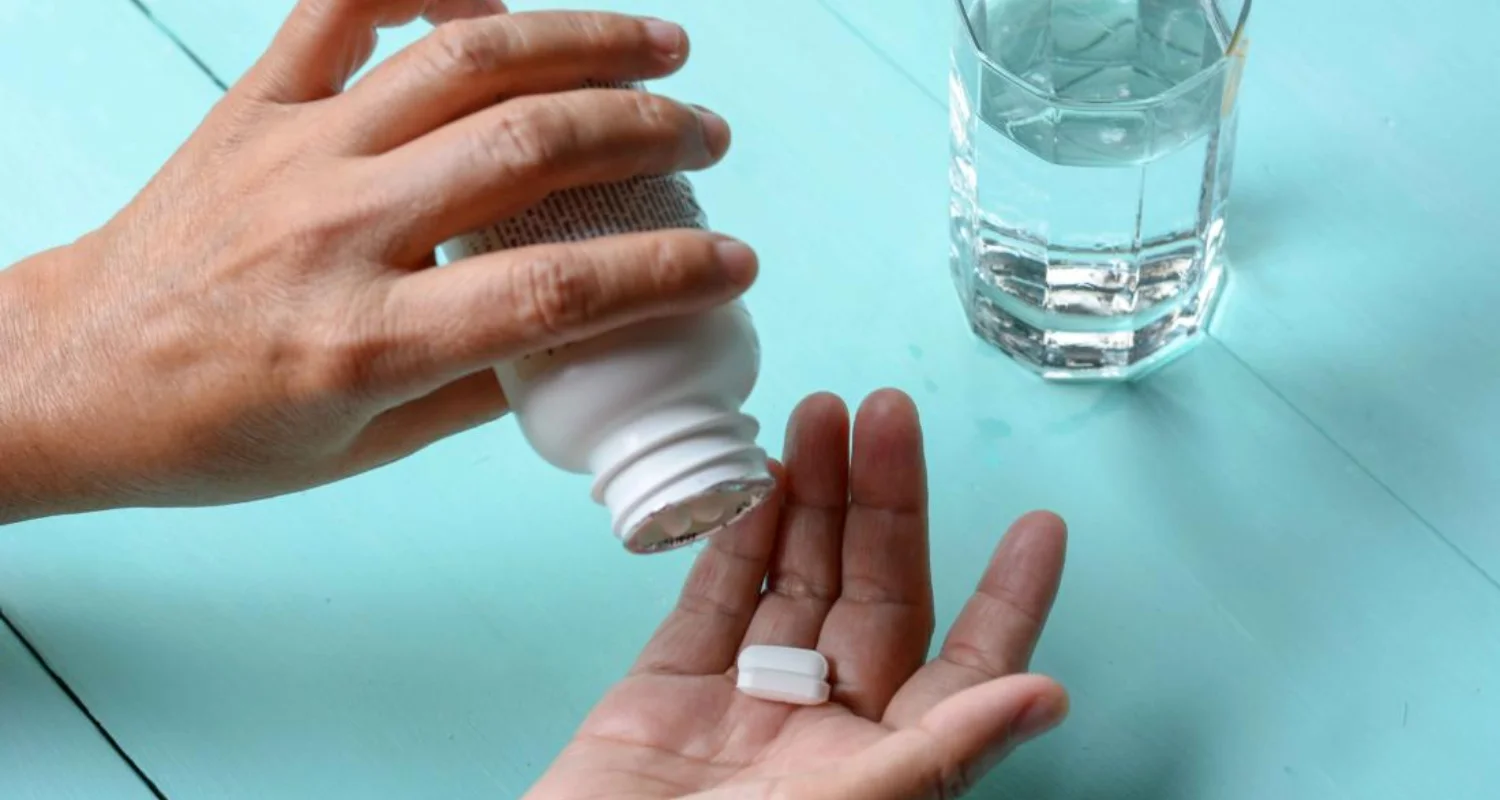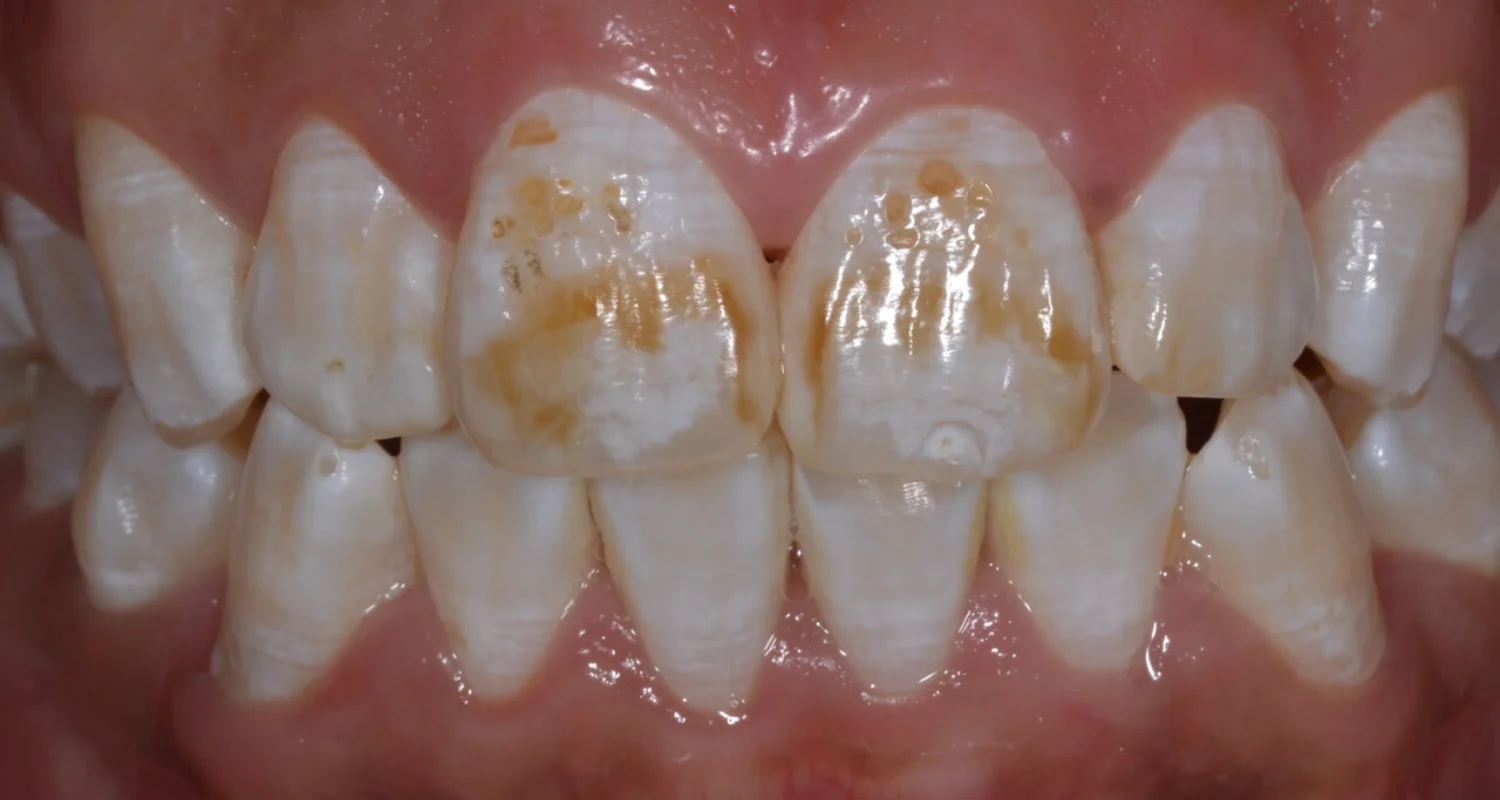Last Updated on: 19th September 2025, 12:37 pm
Fluoride helps strengthen teeth and prevent cavities, but overusing fluoride supplements can cause harmful effects like dental fluorosis, bone problems, and thyroid issues. Because fluoride is widely available in water, toothpaste, and food, supplements are often unnecessary. Safer options include natural fluoride sources and professional dental treatments. Always consult a dentist before giving fluoride supplements, especially to children.
Are fluoride supplements healthy?
Fluoride is a naturally-occurring mineral that strengthens teeth and helps prevent cavities, making it a key component in oral health. It enhances tooth enamel, the protective outer layer of teeth, and fights the bacteria that damage teeth and gums.
Fluoride is particularly beneficial for those at high risk of cavities and is thus commonly found in oral care products like toothpaste and mouthwash. In the U.S., fluoride is also added to public water supplies (water fluoridation) to promote dental health. However, concerns exist about the potential risks of overexposure, especially with the advent of fluoride supplements.
This article explains how fluoride supports dental health, who needs fluoride supplements, and the potentially harmful effects of incorrect use.
What Are Fluoride Supplements and Why Are They Prescribed?

When the risk of cavities is high or people don’t brush their teeth every day with a fluoridated toothpaste, it may be recommended to utilize extra fluoride sources. Fluoride supplements can be prescribed by dentists or pediatricians for children at high risk of cavities.
These fluoride supplements usually come as chewable tablets or lozenges, which should be sucked for 1 to 2 minutes before swallowing. This process enhances the topical action of fluoride.
Drops or tablets form an additional option for these fluoride supplements. If your child is at high risk of cavities and lives in a region without fluoridated water, and they are 6 months or older, you should consider getting them a supply, under the guidance of a dental professional.
Why Dentists Don’t Recommend Fluoride Supplements
Risks of Overconsumption and Fluoride Toxicity
- Excessive use of fluoride supplements, particularly in young children, can lead to dental fluorosis, resulting in discoloration and weakening of tooth enamel.
- Overdosing with fluoride may cause acute toxicity, engendering symptoms such as nausea, vomiting, abdominal pain, and diarrhea.
- This can eventually result in skeletal fluorosis, where prolonged exposure may cause structural weakening of bones, and the strength of bones may be lost with time.
Modern Access to Fluoride Makes Supplements Unnecessary
- Fluoride is widely available from various sources, including fluoridated drinking water, toothpaste, and certain foods, significantly diminishing the need for additional fluoride supplements.
- Localized fluoride treatments by dentists, such as fluoride toothpaste, gels, and varnishes, are now favored because they effectively prevent dental caries without the risks attributed to systemic supplements.
Despite these concerns, fluoride supplements containing drugs for children are often prescribed with the claim that they will prevent cavities. Such medications have not been approved by the FDA as safe and effective for cavity prevention and contain 0.25, 0.5, or 1.0 mg of fluoride.
The marketing of fluoride supplements as cavity preventatives violates federal law. Still, these potentially poisonous drugs are prescribed to millions of children across the United States and even sold at some of the nation’s largest pharmacies.
What Happens if You Take Too Much Fluoride?

Dental fluorosis
Fluorosis causes spots on teeth, ranging from light white to dark brown. These spots usually manifest in children under six while their teeth are forming. Mild cases result in faint white spots or streaks, while more serious cases manifest yellow or brown stains, pits, or surface irregularities.
It’s mainly a cosmetic concern, but very advanced fluorosis can weaken the enamel,making it more prone to erosion and cavities. Fluorosis is irreversible, so great care should be taken to avoid too much fluoride exposure in children.
Long-term health risks
Excessive exposure to fluoride over time leads to systemic health problems beyond dental disorders, such as:
- Skeletal fluorosis: Fluoride gets deposited in the bones, which in turn toughens them, but it also makes them less flexible. It causes pain and stiffness in the joints and increases the risk of fractures.
- Chronic overexposure may cause thyroid dysfunction as it interferes with the absorption of iodine, causing an imbalance in hormones.
- There might be a relation with impairments in the neurological development of children, but this needs further research.
What Are Safer Alternatives to Fluoride Supplements?
Fluoride from natural sources
A safer way to obtain fluoride instead fluoride supplements is through natural sources like fluoridated drinking water and certain foods such as:
- Tea.
- Coffee.
- Oatmeal.
- Shrimp, fish.
- Pork and lamb chop.
- Cottage cheese, cheddar cheese.
- Apples, Bananas.
- Corn, tomatoes.
These sources offer fluoride in moderate amounts, making them safer alternatives to support dental health without the risks associated with overexposure.
Dentist-Recommended Fluoride Treatments

- Fluoride varnishes: A highly-concentrated fluoride solution painted directly onto the teeth by a dentist to strengthen enamel and prevent cavities. It provides a long-lasting protective barrier.
- Fluoride gels: Thick fluoride-rich gels are applied to the teeth during dental visits, often using a mouth tray. These gels help reinforce tooth enamel and are commonly used for patients with high cavity risk.
- Fluoride foams and rinses: Fluoride foams or rinses are sometimes used in dental offices, providing a protective fluoride coating that helps prevent decay.
- Fluoride-based mouthwash and toothpaste: Regular use helps strengthen enamel and prevent cavities in daily oral care.
How to Use Fluoride Safely for Dental Health?
To keep your teeth healthy, brush with fluoride toothpaste at least twice a day. Most adult toothpaste contains 1,000 to 1,500 ppm of fluoride. Parents should consult with a pediatrician or dentist before introducing fluoride toothpaste to their child’s mouth if their child is younger than 2 years old.
When the first tooth erupts, the American Academy of Pediatrics has suggested that a small amount, “smear,” of fluoride toothpaste is to be applied twice daily. For children aged 3–6 years, only a pea-sized quantity of fluoride toothpaste should be used.
The younger children are prescribed toothpaste with lower levels of fluoride (500 ppm) and the dentist must decide the quantity to use when higher concentrations of fluoride are needed.
Should You Ever Consider Fluoride Supplements?

Fluoride supplements are sometimes needed when the water supply is not fluoridated and in areas where people are at a higher risk of getting cavities. However, the dentist must be consulted before use because improper application can lead to an overdose resulting in several side effects as mentioned before.
The decision of whether a child should be on fluoride supplements would be determined by guidelines such as:
- Location: Living in an area where the public water supply is not fluoridated.
- Risk of dental caries: Those with poor oral hygiene, diet, or medical conditions, are associated with a higher risk of getting cavities.
- Fluoride Intake: Assessing current sources of fluoride exposure such as drinking water, food, dental products, etc.
A dentist will be able to evaluate these factors and suggest the safest and most effective options for fluoride intake based on one’s needs.
Takeaway
Fluoride plays a crucial role in maintaining dental health, but overexposure through supplements can lead to serious risks like dental and skeletal fluorosis. Due to modern access to fluoride in water, toothpaste, and professional treatments, supplements are often unnecessary and can be harmful if misused.
Safer alternatives, such as natural fluoride sources and dentist-recommended treatments, provide effective cavity prevention without the dangers of overconsumption. Make sure to always consult a dentist before using fluoride supplements, especially for children.
Frequently Asked Questions
How do you add fluoride to your diet?
Fluoride can be consumed through natural sources such as drinking fluoridated water; eating foods like tea, fish, or dairy; and by using fluoridated toothpaste or mouthwash. Excessive fluoride intake through supplements, however, isn’t usually necessary due to its presence in many common foods and water supplies.
Is the fluoride in your toothpaste good for you?
Yes, fluoride in toothpaste is beneficial. It strengthens tooth enamel, making teeth more resistant to decay. It’s generally safe when used correctly, but young children should use only a small, pea-sized amount.
Is it OK to use fluoride every day?
Yes, daily use of fluoride toothpaste and mouthwash is safe and effective for preventing cavities. However, excessive fluoride from multiple sources can lead to conditions like dental fluorosis; thus, moderation is key.
Are there any potential dangers of using toothpastes with fluoride?
Overuse of fluoride toothpaste, particularly in children, can lead to dental fluorosis, causing white spots or discoloration on teeth. Adults can experience mild digestive discomfort if swallowed in large quantities, so it’s best to use as directed.
What are alternatives to fluoride for oral health?
Some people prefer alternatives like xylitol or calcium phosphate-based products for cavity prevention, though fluoride remains the most effective mineral for enamel strengthening
Voice and Search (Q&A)
Can children take fluoride supplements safely?
Only under a dentist’s supervision. Excessive use in kids can cause fluorosis or other health risks.
What happens if I accidentally take too much fluoride?
You may experience nausea, stomach pain, or long-term issues like fluorosis or bone problems.
Do I need fluoride supplements if my water is fluoridated?
Usually not. Fluoridated water and toothpaste already provide enough fluoride for most people.
Share
References
1. Office of Dietary Supplements – Fluoride. (n.d.). https://ods.od.nih.gov/factsheets/Fluoride-HealthProfessional/
2. Norris, T. (2019b, March 29). What Are the Benefits, Side Effects, and Recommendations for Fluoride Treatment? Retrieved from https://www.healthline.com/health/dental-and-oral-health/fluoride-treatment
3. Sifris, J. M. &. D., MD. (2024, May 20). Why Is There Fluoride in Toothpaste? Retrieved from https://www.verywellhealth.com/facts-about-fluoride-toothpaste-4587999
4. About Fluoride. (2024, May 15). Retrieved from https://www.cdc.gov/oral-health/prevention/about-fluoride.html
- Nayibe Cubillos M. [Author]
Pharmaceutical Chemestry |Pharmaceutical Process Management | Pharmaceutical Care | Pharmaceutical Services Audit | Pharmaceutical Services Process Consulting | Content Project Manager | SEO Knowledge | Content Writer | Leadership | Scrum Master
View all posts
A healthcare writer with a solid background in pharmaceutical chemistry and a thorough understanding of Colombian regulatory processes and comprehensive sector management, she has significant experience coordinating and leading multidisciplina...Recent Posts















